“Always be closing.”
In the film “Glengarry Glen Ross,” Alec Baldwin unleashes a fiery sales speech for the ages, and likens customer acquisition to a simple act of willpower. Absent of both strategy and tactics, Baldwin’s pep talk demands results powered only by a relentless, bulldozer-like attitude. In reality, while willpower is an important ingredient for success, sales is an art form in which a wide palette of skills come into play. Many situations require the finesse of a paintbrush rather than the doggedness of an earthmover.
What’s the secret? We sat down with the sales teams of 18 tech companies to discuss which sales skills are most valuable, which are the most unheralded and how they can best be developed and strengthened. We learned that deeply understanding the customer’s pain points, developing an organized methodology for success and acquiring a jazz-like ability to improvise are critical components for high achievement. These skills aren’t as simple as A-B-C, but they are just as important for exceeding sales goals.
6 Essential Sales Skills For Success
- Self-awareness
- Persistence
- Adaptability
- Active listening
- Organization
- A solid repertoire prospect questions
Big Health
Mina Aghareza
SALES DIRECTOR

Big Health offers behavior programs through its proprietary digital health software to help users address and improve mental health.
For Aghareza, the two most important skills for a salesperson to hone are self-awareness and resilience. She said that the ability to reflect on what went well and what didn’t — and then the ability to not dwell on those mistakes — have been critical to her success as a sales director.
What skill do you consider to be the most essential for your success as a salesperson, and why?
Self-awareness. Each day, I reflect on what went well and what didn't to recognize my losses but also to remind myself of my wins. The losses are simply learning opportunities, lessons on how to improve. If I did more talking than listening in a meeting, I’ll spend more time preparing powerful questions for my next meeting. This can be an uncomfortable process, but it is critical to success.
What’s another skill that is less obvious or less appreciated that you also consider critical for sales success?
Resilience. It goes hand in hand with self-awareness because focusing on what didn’t go well and how my actions may have contributed is hard. It feels yucky. But if I dwell on not being perfect, I waste time not being better.
Each day, I reflect on what went well and what didn’t to recognize my losses but also to remind myself of my wins.”
What advice do you have for sales pros looking to strengthen their skills?
When things aren’t going as anticipated it would be easy to charge ahead and simply try harder. But I’ll stop, take a step back, and give myself room to identify and solve the root issue. If I feel stuck and can’t figure out why, I turn to my peers and leaders. Ten times out of 10, an outside perspective will break down the invisible barriers blocking my flow.
Verkada Inc
Lauren Spears
ENTERPRISE ACCOUNT EXECUTIVE

Verkada is a cloud-based security solution designed for enterprise building security.
Spears’ success as a sales professional can be attributed to maintaining a positive mental outlook. She said that by being self-motivated and ambitious in her day-to-day operations, she’s able to consistently build momentum with new prospects and clients, as well as quickly bounce back from any challenges that may come her way.
What skill do you consider to be the most essential for your success as a salesperson, and why?
Persistence. Walking the tight line between professional persistence and being a pest.
Successful salespeople realize customers buy from people they trust. Building and nurturing that trust is what I consider the most essential skill as it is required every step of the way. From the first cold call to the close, creating trust from nothing requires a subset of skills.
The first is personalized interactions. Prospects don’t want a generic sales pitch! They want something tailored to them. By becoming a subject matter expert and understanding your customers unique situations, you set yourself apart.
The second is providing a white-glove sales experience. Throughout the sales cycle, you have the opportunity to serve as a consultant to your customers as they evaluate your system. By supporting, training, and checking all the boxes for them along the way, it becomes a team effort. It is likely they will want to get the deal done as much as you do, thus making it a win-win!
And the third is building your champion. By asking the right questions and listening to customers, you understand the business problems they need to solve. This helps you and your champion build a compelling, data-driven presentation on how your system will specifically benefit them. That way, conversations are less about price and more about value!
With a positive and goal-oriented outlook, you have constant reasons to stay motivated and passionate about what you do.
What’s another skill that is less obvious or less appreciated that you also consider critical for sales success?
The common denominator behind success in sales is not a soft skill like relationship building or a hard skill like product knowledge. Instead, it is a trait that takes skill to maintain. The trait is mental toughness or grit. It requires the mental skill to stay focused and positive in the face of rejection. It is showing up to work everyday with a can-do attitude.
The skill of cultivating and maintaining mental toughness is critically important because working in sales can put a lot of pressure on you and your abilities — it is certainly not for the faint of heart! By being self-motivated, ambitious, and relentless in your day-to-day operations, you consistently build momentum and quickly bounce back from adversity to exceed expectations and quota attainment goals.
In order to build mental toughness, it is important to set both short-term and long-term goals from daily activity metrics to career aspirations. With a positive and goal-oriented outlook, there are constant reasons and reminders to stay motivated and passionate about what you do. The “why” behind your actions will keep you focused when you lose a deal to competitors or a global pandemic throws a wrench in everything.
What advice do you have for sales pros looking to strengthen their skills?
When I first entered the world of sales, I was drawn to the career path because it was easy for me to see that the effort you put into it has a direct correlation with the results you get out. Although I was inexperienced when I first started, I quickly realized there are a plethora of people and resources to study and learn from.
In the age of information, there is no need to “reinvent the wheel.” Sales professionals around the world have written books, hosted seminars and shared advice in all forms of media. It is easy to access, you just have to go looking for it. Closer to home, there are top salespeople on our teams and in the organizations we work for. If they’ve figured it out, why not ask how they built their foundation for success?
Another major step I’ve taken to strengthen my skills is I have adopted a mindset of continuous learning. Successful people are never satisfied. They are competitive with themselves and realize how imperative it is to innovate, adapt and constantly upgrade their abilities to stay relevant. My advice is to strive to be in the top 20 percent of your sales organization by going above and beyond expectations and learning from the best around you.
Sage Intacct
Annelise Hagmann
SR. MANAGER SALES DEVELOPMENT & OPERATION

Sage Intacct is a cloud-based financial management software.
A willingness to understand and learn from her prospects has been vital to Hagmann’s success as a sales professional. She said that being an active listener enables her to understand prospects’ motivations and how Sage Intacct can better serve their financial needs.
What skill do you consider to be the most essential for your success as a salesperson, and why?
The ability to always be seeking to understand and learn. Be an active listener with your prospects and try to understand their motivations. By doing so, I’ve been able to engage with them and help them better understand how we can best serve their financial needs. Additionally, always be willing to also reflect on your own process or talk track — sales is never stagnant and you need to be willing to grow.
What’s another skill that is less obvious or less appreciated that you also consider critical for sales success?
Organizational and critical thinking skills are extremely important. When should I be reaching out to someone? How is what I’m saying relevant to them? Is this the right person? If you get your process down and are organized enough to execute it, you’ll be unstoppable!
Always be willing to also reflect on your own process or talk track.”
What advice do you have for sales pros looking to strengthen their skills?
Always be willing to try and fail! Your messaging from last year will probably not work this year so change things up and see if you get better responses! Learn through books, podcasts, LinkedIn, etc. There is so much great content that is free to keep you growing.
Cloudvirga
Dawn Svedberg
VP, CUSTOMER SUCCESS
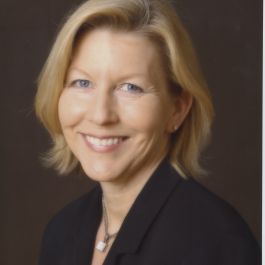
Digital mortgage platform Cloudvirga aims to make the process of securing a mortgage simple, affordable and transparent. As self-proclaimed trusted advisors, the sales team at Cloudvirga is putting their skills to the test starting with discovering everyday users’ needs.
What skill do you consider to be the most essential for your success as a salesperson, and why?
The ability to ask questions and really listen. It seems obvious, but as salespeople, we are excited to share all of the cool features and benefits of our product.
It is critical to ask open-ended questions and then let your customer talk. Don’t be afraid of a pause. They will often surprise you with their openness and will lead (both of you) to a greater understanding of their needs, underlying motivations and circumstances. Hearing them will help you identify the features/benefits that will resonate and will uncover common ground upon which to develop a real relationship.
You will also be surprised at how often your assumptions or research are wrong or outdated. Once you really understand, you can provide the best solution to your customer and create a long-term, mutually beneficial partnership. You then become a trusted advisor, not just another salesperson.
What’s another skill that is less obvious or less appreciated that you also consider critical for sales success? Why is this skill so important?
Keep it simple!
In technology and most other services, the acronyms and descriptions are virtually meaningless unless you are a deep insider. Your customer likely deals with hundreds of products, services and industries, so you need to clearly and concisely explain what you do and how you might help them.
You have a very short window of time to gain their attention and interest. I personally receive dozens of email and phone solicitations. Rarely is it clear what they are offering in the first sentences. I don’t have time to keep reading, research or figure it out on my own.
Translate all stats and specifications into real-world, understandable benefits and meaningful success stories. When confused, people are often uncomfortable admitting that they don’t understand so they just shut down or tune you out. Refine your message by explaining it to your spouse or kids until they understand. Your customers will appreciate the clarity!
Translate all stats and specifications into real-world benefits and meaningful success stories.”
Throughout your sales career, what specific steps have you taken to strengthen these skills? And what advice do you have for sales pros looking to do the same?
Selling is about educating your prospects so that they are aware of their options and can make the best decisions. By listening and empathizing, you will earn the customer’s trust. By clearly explaining in understandable terms, you will win more business.
But to even get to the point where you can sell, you must be fearless in reaching out to your prospects. You can develop fearlessness by recognizing that we are all the same, all with our own wants, needs, insecurities and strengths. Don’t fear rejection or making mistakes. It is all part of the process.
If you (or your company) makes a mistake or causes a problem, correct it, apologize once and move on. Don’t dwell on it. The same goes for rejection: it is just not the right time or fit. Just push reset and start again.
We are all selling all day and every day, even if it is not in our job title. The old saying is true: nothing happens without sales!
TrackVia
Drew Thompson
DIRECTOR OF ACCOUNT MANAGEMENT

At TrackVia, a user-friendly app-building platform, Director of Account Management Drew Thompson knows that asking questions and understanding the customer are essential skills in becoming a successful salesperson. By personally understanding the pain points of each client, it becomes not only easier to create specific solutions that close the deal, but to understand when to push — and when to move on to the next opportunity.
What skill do you consider to be the most essential for your success as a salesperson, and why?
When it comes to essential skills, asking great questions is paramount to your success as a salesperson. In a sales situation, it’s easy (and fun!) to speak to all the amazing features and benefits of your solution — and rightly so! You should be passionate and believe in your offering. But don’t get too carried away!
Asking thought-provoking and open-ended questions early and often is much more important than the pitch itself. It’s all about being naturally curious and demonstrating an interest in solving a customer’s problem. Ultimately, without this skill, you’ll never understand the buyer’s pain or problem or know the impact of your solution (and worse, risk losing the deal).
Asking thought-provoking and open-ended questions early and often is much more important than the pitch itself. ”
What’s another skill that is less obvious or less appreciated that you also consider critical for sales success?
Another critical skill that is under-appreciated is the ability to ‘lose quickly.’ Hear me out. There’s a subtle difference between knowing when to walk away from an opportunity and when to really dig in and compete (and hopefully it’s the latter the majority of the time!).
In enterprise sales, you have to sell to multiple buyers with multiple personalities, needs and agendas. You’re also trying to control things that are really out of your control in the first place (budgets, timelines, competitors, unexpected pandemics, etc.). Over time you should become great at pattern recognition for all these factors and begin to develop a framework if you are in the right deal or not.
There’s an opportunity cost for every deal you work and when you compete, compete to win. The more you develop this skill, the more time you can commit to successful sales and not waste time or resources on the wrong deals.
Throughout your sales career, what specific steps have you taken to strengthen these skills?
In order to develop and strengthen these skills, I believe it takes focus and repetition. You’ll learn things from your sales managers, read the latest sales strategies books or blogs, and hopefully have some learning moments from deals you've lost. But all that information can be distracting and overwhelming.
As a salesperson, you’ll have a shot at many opportunities over the course of your career. My advice is to focus on developing a few skills at a time and implement them in your sales process over and over until it becomes second nature. Oh and for all those up-and-coming sales pros out there, remember to give yourself some grace, have fun and learn something every step of the way.
Brandfolder
Caitlin Safchik
ACCOUNT EXECUTIVE

Caitlin Safchik is an account executive at Brandfolder, a cloud-based digital asset management platform. She is a firm believer in the power of thorough organization to fast-track efficiency, prevent errors and improve the understanding of each account. She also believes in the importance of asking questions in order to gain a three-dimensional understanding of the customer, which unlocks the best avenues to a successful sale.
What skill do you consider to be the most essential for your success as a salesperson, and why?
The skill I consider to be the most essential for my success as a salesperson is organization. It’s really important to stay organized throughout the entire sales process so you never skip a beat. As a sales rep we are involved in almost every aspect of the sales process, so if you’re not organized, things will fall through the cracks. I realized early on that keeping my Salesforce up to date and organized has led me to not only become better at forecasting but also to have a better grip on where each deal stands. Additionally, being organized helps my team be informed especially when bringing a solutions engineer into the conversation.
Keeping my Salesforce up to date and organized has led me to not only become better at forecasting but also to have a better grip on where each deal stands.”
What’s another skill that is less obvious or less appreciated that you also consider critical for sales success?
Another skill that is maybe less obvious that I consider critical for sales success is curiosity. There are two parts to this; one is being curious about the company you work for and two is being curious about the prospect’s pain points and how one can actually help them. As a sales rep, it’s really important to ask questions and not just any questions, but the right questions. This will ultimately allow you to get a better understanding if it makes sense to continue conversations vs. wasting time.
Throughout your sales career, what specific steps have you taken to strengthen these skills?
I am always learning from other successful reps and asking questions along the way. I learned quickly that you can’t be afraid to ask questions and it’s OK to not know something. One thing that is critical is being open to feedback and always looking to improve.
Choozle
Branden Miller
VICE PRESIDENT OF SALES AND ACCOUNT MANAGEMENT
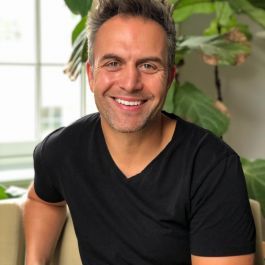
Branden Miller is vice president of sales and account management at Choozle, a digital advertising software platform. He views successful sales skills from the perspective of a professional athlete and a jazz musician, specifically the coachability of the athlete and the improvisation and creativity of the musician.
What skill do you consider to be the most essential for your success as a salesperson, and why?
While there are many skills that are essential to be a good salesperson, coachability (with execution) is paramount. When you are a sales professional it’s important to remind yourself that you are a “professional.” Just like a professional athlete, salespeople need guidance daily, weekly and monthly in order to execute well and achieve desired outcomes. If you can’t take feedback, adapt and execute on new directives then it will be much harder to succeed.
Several skills are a very close second: initiative, resilience and consistency.
What’s another skill that is less obvious or less appreciated that you also consider critical for sales success?
Creativity. It’s important to understand that sometimes the process or strategies that have helped you to succeed in the past don’t always work or continue to work. Having a standard process helps drive consistency, but understanding when to be creative is always important. In many conversations, I have related this to jazz. Jazz music has a time signature, key signature and standard riffs that you always play, but there are also places in the music that the player has to improvise (while keeping the structure of the piece in mind). Sales is similar. You have activity KPI, go-to-market strategy and a sales process that all help you create consistent sales, but there are times in prospecting, pitching or closing that you have to be creative and go off-script. Understanding when it’s time to do this often means the difference between a closed deal and a “no.”
There are times in prospecting, pitching or closing that you have to be creative and go off-script.”
Throughout your sales career, what specific steps have you taken to strengthen these skills?
The most important step is to have a standard process. Without having the ideal system outlined and set up, it is nearly impossible to optimize and make things better. In my current position, I set our go-to-market, sales process and accountabilities and then ensure that each of our team members has clarity on these areas. The whole team needs to understand the system and be aligned with expectations to ensure accountability. The next step is to optimize. Systems need to adapt to stay relevant and drive accelerated outcomes. Personally, I schedule a professional “think day” one time per quarter to evaluate how we need to rethink and adapt our strategy and process to improve and then make those changes to start the next quarter.
Get clarity on your process and don’t be so married to it that you cannot make it better. Just like a professional athlete studies their craft and trains hard to get better, sales professionals need to do the same. If you don’t learn, adapt and evolve, you won’t reach your highest potential.
PlayerLync
Brad Gray
ENTERPRISE ACCOUNT EXECUTIVE
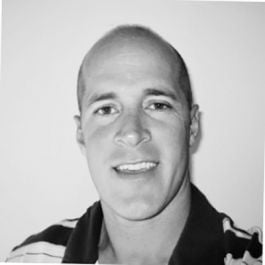
Prep work, alignment and allies are the key tools for sales success at PlayerLync, a mobile workforce enablement platform. Brad Gray, an enterprise account executive, believes in the importance of strategic alignment with every level of the organization. Crucially, he believes in the importance of listening carefully and asking the right questions, which creates new opportunities at critical moments.
What skill do you consider to be the most essential for your success as a salesperson, and why?
Listening and aligning to business goals and strategic objectives of the organization. If not aligned at multiple business levels, IT and other stakeholders, you will not get funded. Also, ask the right questions to help facilitate the qualification of an opportunity, but in a consultative manner.
What’s another skill that is less obvious or less appreciated that you also consider critical for sales success?
Prepping folks for specific calls during the buyer’s journey is key. Understanding which topics are crucial to move the opportunity forward and prepping your team (and their team) so each side is prepared to speak to those topics is important. Also, having a key contact (champion) on the buyer's side to understand priorities and specific areas of concern is a huge benefit throughout the process.
Prepping folks for specific calls during the buyer’s journey is key.”
Throughout your sales career, what specific steps have you taken to strengthen these skills?
Welcome feedback and apply it to create your style and adapt by studying current processes and procedures needed to help the buyer’s journey. Facilitate rep lunches or meetings where you can share best practices and recent learnings.
Grubhub
Selena Sacchetti
SENIOR SALES EXECUTIVE
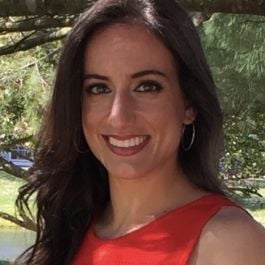
Grubhub is an online, mobile food-ordering and delivery marketplace that features over 245,000 restaurants spanning 4,000 U.S. cities.
Senior Sales Executive Selena Sacchetti described her sales approach as empathetic. She’s found that putting herself in a prospective partner’s shoes has enabled her to interact with them in a way that helps them better understand Grubhub and the service it provides. Sacchetti’s empathetic approach also includes careful listening and responding to prospects, as well as addressing all questions clearly and thoroughly.
What skill do you consider to be the most essential for your success as a salesperson, and why?
Focusing on just one task at a time is a skill that has helped immensely. In sales, there are a hundred different things I could be doing at any given point in the day. This can be overwhelming because we all want to spend our time as efficiently as possible. It’s easy to get worried and feel like I should be working on something other than what I’m working on at the time. If I’m caught up trying to decide which leads list to work off of or if it would be more beneficial to send emails, prospect or make calls, I end up bouncing back and forth between tasks, not really making a dent anywhere. Multitasking has never worked for me.
My most successful days are when I pick one specific task and hone in on that. Whether it's for 30 minutes or three hours, I pick one activity and I don't deviate from it. After I’ve dedicated an allotted amount of time to one task, then I can move on to the next. Working this way is beneficial for a couple of reasons. Channeling my efforts into just one task helps me maintain momentum. It also forces me to isolate practices so I can more accurately evaluate what was impactful and what’s worth dedicating more time to.
What’s another skill that is less obvious or less appreciated that you also consider critical for sales success?
Working with an empathetic approach goes a long way. Putting myself in a prospective restaurant partner’s shoes enables me to interact with them in a way that makes it easier to engage with me and with Grubhub. I try to think: “How would I want to be greeted on the phone?” and, “How would I want this aspect of our platform explained?” I communicate with people the way I would prefer someone to communicate with me.
Keeping in mind that one of Grubhub’s core values is to be “authentically fun” helps me do that. I’m more likely to read emails with concise wording and fun GIFs, so those are the kinds of emails I send. I’m more likely to spend 10 minutes on the phone with someone who’s fun to talk to, so I try to make people smile when I call them. Having enthusiasm goes hand in hand with being fun, so it’s super important to bring that to my work. If I’m not excited to be on the phone, why should the other person be? I also make sure people know that I care and that Grubhub cares. Carefully listening and responding shows I’m invested. I make sure to directly address all questions clearly and thoroughly. At the end of the day, I think of the sales experience I would want and then create that.
My most successful days are when I pick one specific task and hone in on that.”
Throughout your sales career, what specific steps have you taken to strengthen these skills? And what advice do you have for sales pros looking to do the same?
To strengthen my focus and productivity, I’ve always made a to-do list for every day. Most of the time I write my list for the next day the night before, so I can start the day with a game plan. My advice for creating more effective to-do lists is to have the items on the list be specific activities rather than objectives. Writing “add three new restaurants to my pipeline” does not help guide my workflow. It’s vague and does not tell me explicitly what to focus on. How am I adding these three new restaurants to my pipeline? Instead, my to-do lists include bullets like, “spend two hours between 9 a.m. and 11 a.m. calling restaurants in ZIP codes x, y and z.”
To work with a more empathetic approach, I continuously re-evaluate what I’m doing through the lens of a prospective restaurant partner. I recommend listening to recorded phone conversations and re-reading written content regularly. Listening and reading as if on the other side of the conversation offers a different insight and tells me what to change. I can then adjust what I say over the phone and what I write in emails to better replicate the sales experience I would want and that I think people will be more receptive to.
Mothership
Matt Williams
SENIOR SALES MANAGER

Mothership is a logistics company that’s focused on making freight delivery more efficient with real-time tracking, on-demand truck booking and same-day delivery.
Senior Sales Manager Matt Williams said that in order for sales reps to be successful, they need to be able to independently solve problems that come their way. This includes partnering with different teams throughout the entire organization to come up with a solution as well as effectively communicating that solution to customers and prospects.
What skill do you consider to be the most essential for your success as a salesperson, and why?
Since the pandemic began, I’ve found a consultative approach to be key to my team’s success. With supply chains across the country impacted differently, it’s pivotal that we actively listen to our prospects’ circumstances and needs and leverage that to determine which features in our arsenal will connect most effectively. We are so much more likely to help a business by making sure we are actively engaging and listening to their needs and tailoring our strategy accordingly.
Another key skill is storytelling. I’ve partnered with our marketing and design teams to evolve our product demo to tell the story of how Mothership breaks down traditional legacy models and revolutionizes the industry on a macro level and exactly how that will specifically benefit a prospect’s supply chain on a micro level. The ability to tell that story clearly and specifically while also being tailored to a prospect’s circumstances is an absolutely crucial part of our sales strategy.
Independent problem-solving and the ability to partner with different teams has been critical for my team's success.”
What’s another skill that is less obvious or less appreciated that you also consider critical for sales success?
Independent problem-solving and the ability to partner with different teams in the organization has been critical for my team’s success at Mothership. I have too often seen many sales reps minimize problems that touch other departments because they don’t completely understand the problem or a solution isn’t obvious. The best sales reps truly function as boots on the ground and effectively communicate prospect and customer feedback back to the wider organization to ensure problems are resolved. They are a part of solving the problem. Working at a startup presents infinite opportunities to expand your skill set and sharpen your experience beyond strictly selling to become the best professional version of yourself.
Throughout your sales career, what specific steps have you taken to strengthen these skills? And what advice do you have for sales pros looking to do the same?
Some of the best advice I received early on in my career was, “listen to what you don’t want to hear.” It took me many years to understand what that really means. Critical thinking and the ability to receive tough feedback are probably the most challenging aspects of working in sales.
Some of the best growth in my career has come from requesting continuous feedback and training to hone my strengths and identify my weaknesses. Do not be afraid to ask your managers and your team for honest feedback, especially in areas that you think you may be struggling in. I can tell you to this day, I am still trying to truly listen to what I don’t want to hear when receiving feedback, but it’s undoubtedly what has helped me grow the most.
DFIN
Carey Pasek
SENIOR SALES REPRESENTATIVE
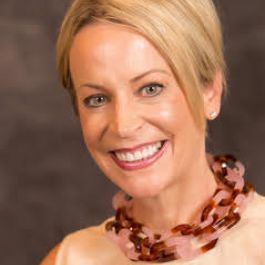
Donnelley Financial Solutions, or DFIN, delivers end-to-end risk and compliance solutions through its proprietary software domain.
For Senior Sales Representative Carey Pasek, active and honest listening is a less obvious yet essential skill for success as a salesperson. She said that while it’s good to be extroverted, she’s found that some of her most effective and insightful client interactions are when she does the least amount of talking and the most amount of active listening.
What skill do you consider to be the most essential for your success as a salesperson, and why?
Process discipline. From a relationship map to a whitespace document, a structured approach to account management is essential. We need to be asking ourselves questions like, “Who do we know?; Who don’t we know that we need to know?; What do we understand about the account?; What are the gaps in understanding?”
Taking the time and having the discipline to honestly assess the current state of our relationship with a client is foundational: you can’t know where you’re going if you don’t understand where you’re starting. This requires time and effort, however, it’s critical for success. As the saying goes, “Don’t be upset for the results you didn’t get for the work you didn’t do.” You have to be willing to put in the work.
Managing an account involves constant discovery and to be successful in discovery, you have to be an engaged listener.”
What’s another skill that is less obvious or less appreciated that you also consider critical for sales success?
Active and honest listening. Contrary to the stereotypical, extroverted sales rep, some of my most effective and insightful client interactions are when I do the least amount of talking, and the most active listening. Client insight is exponentially easier to excavate when you stop “pitching” and start listening. You can’t solve a problem if you don’t understand what you’re solving for. Ask a lot of questions then sit back and listen. Managing an account involves constant discovery and to be successful in discovery, you have to be an engaged listener.
Throughout your sales career, what specific steps have you taken to strengthen these skills? And what advice do you have for sales pros looking to do the same?
I’ve taken active ownership in my own learning: to “get smart” where I recognize I have knowledge deficiencies and then take the initiative to locate resources to shore up those gaps. Coming into this business many years ago, while I had world-class sales training and years of sales experience, I knew absolutely nothing about the financial services vertical. From that aspect, I was probably the least likely candidate for this sales role! I literally got my hand on any book or article I could find to figure out what this space was about.
With this as a starting point, I asked — and to this day continue to ask — a lot of questions. Just because you are a top performer doesn’t mean you have an innate ability to understand things.
In my experience, it’s the opposite. A top performer is never too proud to recognize that they don’t understand something. Chances are, there are more people who don’t understand it either — they’re just afraid to show vulnerability in asking. Don’t be that person. You’ll be a better rep and a more qualified consultant to your clients by asking. Competence is confidence. Just don’t expect anyone to hand it to you. Continually be curious and take responsibility to constantly learn.
Dynatrace
Christina Zmrazek
INSIDE SALES REPRESENTATIVE

What they do: Dynatrace uses artificial intelligence, advanced observability and automation to provide users an all-in-one software platform that simplifies cloud complexities and accelerates digital transformation.
What skill do you consider to be the most essential for your success as a salesperson, and why?
It’s difficult to pick one skill as there are a slew of skills and learned traits that make the success of any individual in any given role. Recognizing this, a skill that has most definitely been essential in my career thus far is the ability to be consistently self-driven. As a salesperson, you have to be able to understand your “why” and execute your plan on a consistent, daily basis.
We all know sales is a grind day-in, day-out. No one is going to do your job or pick up the phone for you. You’re going to have to carry the weight yourself and have the courage to take intelligent risks. This, accompanied with the mindset that the next opportunity is just around the corner, will bring you far throughout your career.
Salespeople get rejected multiple times each day, and you can’t let that bring you down or get you off of your game.”
What’s another skill that is less obvious or less appreciated that you also consider critical for sales success?
I have a post-it note on my computer monitor that says, “My energy creates my reality.” Your mindset is your most undervalued asset. Think about it. It’s easy to spot a yellow car if you’re always thinking of a yellow car, just as it’s easy to spot an opportunity if you’re focused on opportunity. Salespeople get rejected multiple times each day, and you can’t let that bring you down or get you off of your game. You have to have a short memory in that regard, bring your best self to your customers and your team day-in and day-out, and execute like every quarter is the fourth quarter.
What advice do you have for sales pros looking to strengthen their skills?
Learn from everyone and every experience. Be a sponge. Also, remember that your network is your net worth. Have a network of people from different business sectors and experience levels, and learn how to “chew the meat and spit out the bones.” By this, I mean to understand and learn the ability to leverage the advice and past experience of others but only in the ways that make sense for you and your opportunity.
Your inner voice and intuition are important, and you have to be able to not only cultivate the self-awareness to hear it but have the courage to follow it as well. You cannot use what you do not have and just because a certain strategy or positioning worked for someone else doesn’t mean it will work for you if it doesn’t feel natural. Stay true to yourself and continue to build your business on the foundation of integrity and credibility.
Formlabs
AJ DiStefano
DIRECT SALES MANAGER

What they do: Formlabs is a 3D-printing tool, material and software provider. Its U.S., European and Asian offices produce solutions that span a number of industries including jewelry, dental, research, audiology and more.
What skill do you consider to be the most essential for your success as a salesperson, and why?
Active listening. A lot of salespeople can love to dominate a conversation, especially ones who are newer to a company and want to show off all the product and market expertise they have worked hard to learn. However, in sales we want the prospect talking for the majority of the conversation so that we can uncover more information about them.
Sales is about finding a solution to a prospect’s problem. This could be a problem they are currently aware of, a problem that they don’t know they have or both. Knowledge is power in this situation, as the more we know about the customer, the easier it will be to provide a perfect solution to their problem(s) — hopefully leading to a sale.
A sales rep who just spews knowledge at a prospect and dominates the conversation is overloading them with information that may not be applicable to them or their problem. A sales rep who strategically asks probing questions to get the prospect talking about their current problems and then engages in active listening will then be able to apply their product expertise selectively as it pertains to the customer.
Pick your spots in a conversation to get the prospect going and turn on your active listening.
Sales is about finding a solution to a prospect’s problem.”
What’s another skill that is less obvious or less appreciated that you also consider critical for sales success?
Organization. It seems fairly simple, but it’s not. In a high volume sales process especially, organization is key. You can be the best salesperson on the phone, but if your sales tools are a mess it might not matter.
Staying organized with your next steps, follow-up tasks and outreach activities will allow you to scale up volumes while maintaining the same efficiency as lower volumes. Mastering your workflow allows you to put all of your efforts into your sales conversations, rather than trying to remember who you need to follow up with or who you may need to still send a quote to.
I typically compare this to building blocks when discussing with our reps, as simple as it sounds. Your organization and workflow are your base. If you have a strong base, you can pile on and build up heavily with high activity and everything will be stable. However, if you have a poor base and try to pile on the activities, everything you build is going to fall apart.
What advice do you have for sales pros looking to strengthen their skills?
Constantly be hungry for more knowledge in any way that you can get it. Even if you are the top sales rep on your team, there are things that you can improve. (If you think there is nothing you can improve, please reach out to me.) There are a few main areas to focus on in order to continue your self-development:
- Read, read and read. There are so many great sales books out there that can constantly hone in your craft on your own time. Just because you’re done with school doesn’t mean you should stop reading for learning purposes.
- Attend webinars. I have been watching more webinars during COVID as they are much more prevalent. There are sales skills ones, but I have mostly been ones related to sales tools we use. I have picked up some tips and tricks that I pass along to the team. Even if you pick one thing up that can increase productivity!
- Talk to others. Sharing best practices is a great way to learn new things while also helping others. This is something that truly is not done enough. Whether it is a mentor, coworker or friend, never be afraid to ask questions and learn from others!
Cognite
Chad Bullard
SENIOR DIRECTOR OF STRATEGIC ACCOUNTS
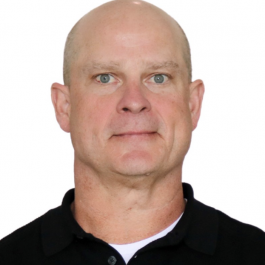
What skill do you consider to be the most essential for your success as a salesperson, and why?
I believe the most essential skill to be successful as a salesperson is to really listen to your customers. So many salespeople head into meetings with what they want to say, what product they want to pitch and the PowerPoint presentation deck they have practiced. They miss out on the most important thing, which is to ask discovery questions and listen to the customer.
What’s another skill that is less obvious or less appreciated that you also consider critical for sales success, and why is it so important?
Another skill that is less obvious is early and often qualification. The time and resources for most salespeople are limited so it’s critical to make sure you maximize your time on deals that will provide significant value to your customer, have a budget, can be technically achieved and provide near-term results. It’s essential to analyze your deals against these metrics early and continuously.
I believe the most essential skill to be successful as a salesperson is to really listen to your customers.’’
Throughout your sales career, what specific steps have you taken to strengthen these skills and what advice do you have for sales pros looking to do the same?
There are several key steps I’ve taken throughout my career to strengthen my skills. I continuously look for opportunities to learn from others who have been successful, surround myself with a solid sales support team and work hard to understand my customer’s business and industry. I also value gaining trust and credibility with my customer and take time to analyze my lost deals and what I would apply differently going forward.
SailPoint
Victoria Abeling
VICE PRESIDENT OF WW INSIDE SALES

What skill do you consider to be the most essential for your success as a salesperson, and why?
The dictionary defines curiosity as “eager to know or learn something.” I believe curiosity is the most fundamental skill as humans build relationships, nurture partnerships, make friends and stay genuine. In sales, it teaches you that you must provide value to the customer. Curiosity is how you do that. Asking questions to help a customer realize the value you are presenting is an important skill a salesperson must hone.
What’s another skill that is less obvious or less appreciated that you also consider critical for sales success, and why is it so important?
Many people who know me know that I admire Bobby Bones from “The Bobby Bones Show.” His motto is “Fight. Grind. Repeat.” In simple terms, this means it is OK to make a mistake. Let me repeat this: It is OK to make a mistake. In sales, you will always make mistakes but what you do about it will set you apart and drive your ultimate success. This is not just a critical “skill.” It leads to self-awareness, emotional IQ and grit. These three descriptions usually come to mind when hiring for sales. I am very bullish about the fact that, until you know how to fight, grind and repeat, you will not be successful.
In sales, you will always make mistakes. What you do about it will set you apart and drive your ultimate success.’’
Throughout your sales career, what specific steps have you taken to strengthen these skills and what advice do you have for sales pros looking to do the same?
As I mentioned above, making mistakes is a natural and expected part of your sales career progression. Sometimes these mistakes can set you off of your path. Do not be afraid if your course takes you to a “truck stop” or if point A to point B is not a direct line. I took multiple different paths in my own career before I ended up where I am today. I attribute all of those experiences, emotions and learning stages to this success. You will get a more rounded resume, set yourself apart from other candidates, show you are open to new ideas and ultimately prove to be a more valuable asset to your company.
Levelset
Michael Kungl
STRATEGIC ACCOUNT EXECUTIVE

What skill do you consider to be the most essential for your success as a salesperson, and why?
Empathy. People want to buy from people whom they like and who understand them. If you are a master of your own product but have no idea what the day-to-day is like for your customer, you’ll struggle to build a meaningful relationship. Getting to know your customer, understanding what keeps them up at night and understanding what impact your company will have on this person’s life will allow you to sell more effectively.
What’s another skill that is less obvious or less appreciated that you also consider critical for sales success, and why is it so important?
Excitement. It’s easy to show excitement when you finally book that meeting with the white whale on your target list. But it’s also just as easy to go through the motions when you are working with the smaller accounts. The reality is that the buying experience plays a big part in whether or not a company will purchase your solution. Excitement, just like energy, is contagious. If you show up to every meeting as if it’s the most important one that you’ve had all quarter, your customers will follow suit and will trust you as the person who has their best interests in mind.
People want to buy from people whom they like and who understand them.’’
Throughout your sales career, what specific steps have you taken to strengthen these skills and what advice do you have for sales pros looking to do the same?
I got lucky in strengthening these skills because I started at Levelset when we were a 30-person company. Not only was I selling, but I was also part of the customer success and support departments. That meant that there were plenty of times when I had to drive a customer’s document to the post office 15 minutes before closing to ensure they met a critical deadline. To this day, I still think about the anxiety I felt on those drives because it helped me understand how my customers were feeling and how they were putting their trust in me to deliver for them.
If you are like me and only responsible for new logo hunting, I would recommend joining the occasional customer training or account management call. Not only will you have the opportunity to see how your company has impacted the customer after the sale but you will also be able to gather stories you can share with the next prospect that comes your way. Don’t forget to ask for a referral from those happy folks as well.
Gooten Inc.
Kevin McDowell
SENIOR PARTNERSHIPS MANAGER

Stay Organized
Organization and time management go side by side with adaptability. At Gooten, a workflow automation platform that allows thousands of e-commerce companies to access print on-demand production capacity, McDowell is always keeping an eye on how he’s using his time.
What skill do you consider to be the most essential for your success as a salesperson?
I believe the most essential skill for any successful salesperson is adaptability. Regardless of industry, a successful salesperson needs to be able to adapt to any situation. Oftentimes, sales demands the ability to pivot at a moment’s notice. A successful salesperson needs to be able to adapt, whether that’s in pre-planning or strategy, different tasks assigned to you from a superior or even in a conversation with a partner or potential client.
In a perfect world, a salesperson would be able to control all of the variables associated with the sale. But typically, there are unforeseen circumstances throughout the sales process, and successful salespeople are the ones who can manage those conditions.
What’s another skill that is less obvious or less appreciated that you also consider critical for sales success?
Organization and time management. Salespeople are required to manage multiple clients or partners at the same time. There is no way someone can be successful as a salesperson without multitasking. Sales can often be overwhelming due to the multitude of different responsibilities. Part of being organized is managing time efficiently. In sales, your calendar is your best friend. It helps you keep track of what needs to be accomplished as well as how much time you should spend on a specific duty. The average workday is typically eight or nine hours, and a successful salesperson is able to make the most out of that time.
Regardless of industry, a successful salesperson needs to be able to adapt to any situation.’’
Throughout your sales career, what specific steps have you taken to strengthen these skills? And what advice do you have for sales pros looking to do the same?
Take the time to identify and acknowledge the skills that you would like to improve. No one is perfect and each individual has a different set of skills that they would like to work on. Something that’s helped me work on adaptability is reminding myself to control what I can control. I always expect that there will most likely be variables that arise that are outside of my control, so having that expectation has helped me prepare for when these unforeseen circumstances emerge.
In regards to organization and time management, I’d say repetition is key. Finding your workflow that you can repeat on a systematic basis is essential. I use a running to-do list as well as my calendar to keep myself on track.
Aquant
David Weinblatt
BUSINESS DEVELOPMENT

Listen Up
According to Weinblatt, the most important skill a salesperson can have is listening. At Aquant, a platform that helps organizations plan, predict and prescribe decisions throughout the service lifecycle, there’s no one-size-fits-all approach. By listening to the client, salespeople are able to adjust their approaches.
What skill do you consider to be the most essential for your success as a salesperson?
Persistence and adaptability are pivotal for any salesperson. Persistence in sales means that you have tough skin, and that you don’t fear rejection no matter how many times you hear the word “no.” But adaptability is having the foresight to alter your approach based on what messages appear to be more effective than others, the timing of each message and providing new educational content beyond a call to action. There’s a creativity to it all. Sometimes, adaptability goes beyond tweaking your messaging.
We’ve had to adapt to a full digital landscape of webinars with the loss of our physical conferences throughout the COVID-19 pandemic. But we’ve been able to turn what could have been a sour situation into one that’s become quite fruitful. The entire Aquant team shifted gears tactically, with proper caution, strategy, initiative and ambition. Sales have thrived in these newer, uncharted territories.
What’s another skill that is less obvious or less appreciated that you also consider critical for sales success?
Listening is key. What you’re listening for may change based on a company’s industry, prospect’s title and other factors. But you need to anticipate the pain points of your audience, because outreach must be personal.
At Aquant, we listen to their vantage point. We don’t blindly sell.’’
A good salesperson cannot rely on a one-size-fits-all approach. Instead, go back to that adaptability and allow them to walk you through their needs. Let them guide, and you adjust from there. Answer their questions and mirror their diction with a sense of understanding and comfort, along with strategic, catered responses. Much of that begins on the front lines of sales and business development. At Aquant, we listen to their vantage point. We don’t blindly sell.
Throughout your sales career, what specific steps have you taken to strengthen these skills? And what advice do you have for sales pros looking to do the same?
I strengthened these skills by seeking advice from colleagues and reviewing what processes have worked for them in similar situations. Learning from seasoned account executives, business development experts and top marketing minds has been crucial in my personal growth. It can be challenging to step outside of your skin to figure out what you need to improve upon. But a willingness to improve on your successes and learn from the missed opportunities is vital to help the business thrive.




